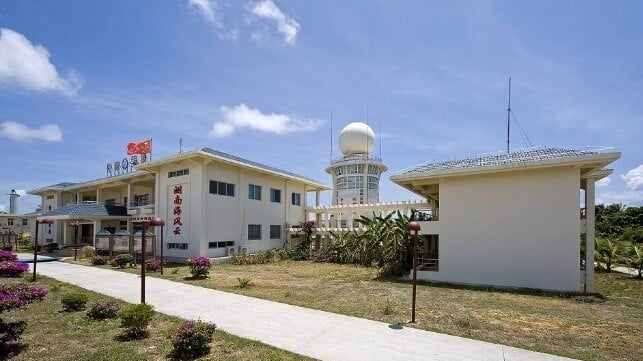Vietnam Protests China's AIS Ground Stations in the Paracel Islands

Vietnam is protesting the installation of two automatic ship identification stations by China in the disputed Paracel Islands. The two stations, launched two weeks ago, use China’s BeiDou satellite system and are connected to land-based AIS (Automatic Identification System) receivers.
According to state broadcaster CCTV, the two ground stations will help “solve the problem of a blind spot in China’s shore-based ship AIS in the waters around Paracels.” China’s maritime administration requires all ships within Chinese-claimed jurisdictions to have an AIS transponder and to keep the signal on at all times.
However, Vietnam has described the ground station installations as a further violation of its sovereignty. The Paracels are Chinese-occupied and have been extensively militarized by the People’s Liberation Army, but Vietnam still maintains a long-running claim to the archipelago.
“All activities on the Paracel Islands without Vietnam’s permission violate the nation’s sovereignty and are completely invalid,” said Ministry of Foreign Affairs spokesperson Pham Thu Hang while speaking to local media on Monday.
The Ministry of Foreign Affairs affirms that Paracel Islands and the neighboring Spratly Islands remain under the jurisdiction of Vietnam. China has occupied the Paracels since 1974. In 2012, China established an administrative center and military base, “Sansha City,” on Woody Island, the largest island in the group. It is the headquarters for all Chinese territorial claims in the South China Sea.

that matters most
Get the latest maritime news delivered to your inbox daily.
Vietnam’s opposition to China’s AIS ground stations in Paracel Islands came a day after Philippines removed a 1000-foot floating barrier, which the China Coast Guard had installed at disputed Scarborough Shoal in South China Sea.
With tension continuing to rise in the region, the ASEAN bloc has said it is finalizing a Code of Conduct (CoC) to be negotiated with China, in hope of quelling the multiple maritime disputes in the South China Sea.
